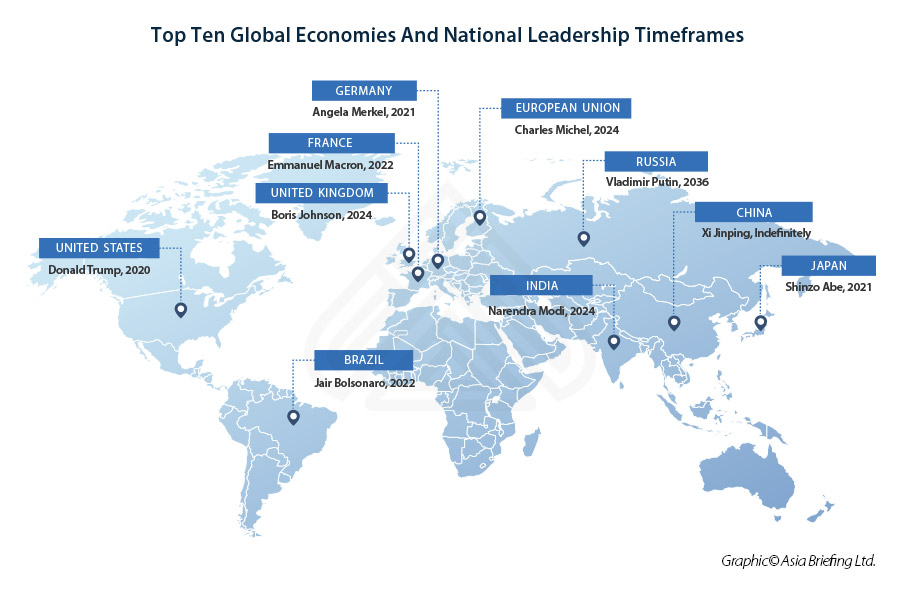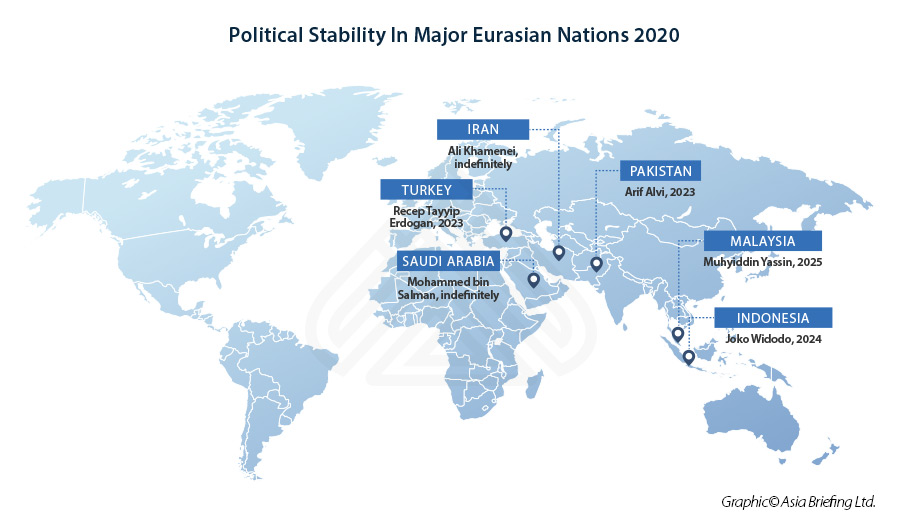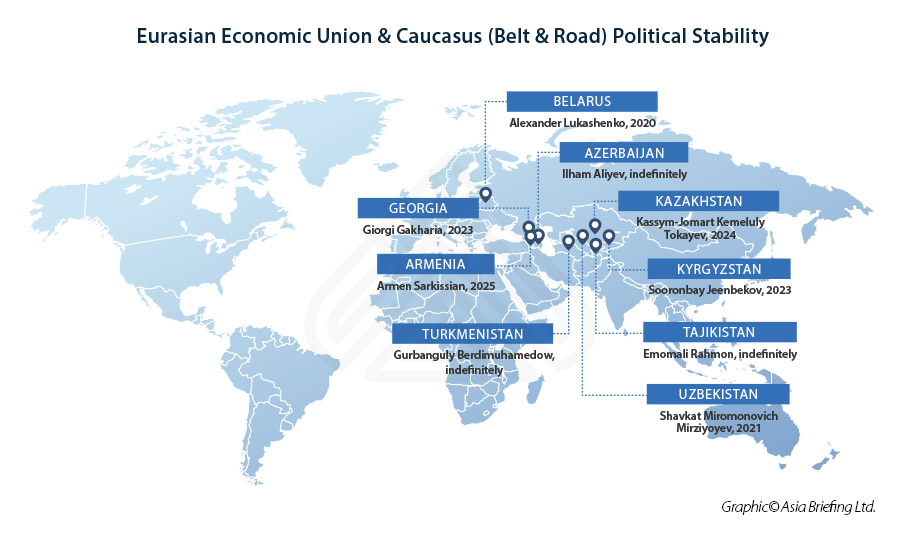Political & Trade Uncertainty Looms In The EU & USA – But Asia And The Belt & Road Initiative Are Looking Good
Op/Ed by Chris Devonshire-Ellis
Taking a look at how upcoming global and regional elections are taking shape gives us an interesting insight into the make up of the worlds political make up after the Covid-19 pandemic, and into the new decade of the 2020’s.
Firstly, we can examine the global picture and look at the Top Ten Global economies and how their political situation is to develop.

As can be seen, there is a lot to be determined in the next 12 months with far-reaching election consequences and subsequent unknowns coming in. Terms are expiring in the United States, Japan and Germany with Brazil and France just another year behind. Depending on whom stays in power or is elected as alternatives significantly impacts upon the US and EU in particular. This is at a time when both China and Russia are maintaining their political leadership. India’s Prime Minister Modi is a populist and will also be in power until 2024. The sustainable knowns therefore are very much China, India and Russia. The uncertainty comes from what will occur in the United States and European Union.
We can then dig a bit deeper and look at the more powerful countries in Eurasia.

This is more of a mixed bag, although still retains more certainty than the West. Countries that are powerful players in terms of energy and connectivity are within this grouping, with Iran and Saudi Arabia unlikely to deviate from their current positions. In Turkey, Recep Erdogan is slowly unveiling a constitution likely to keep him in power beyond 2023, while the main ASEAN Islamic markets of Indonesia and Malaysia are also developing stability, as is Pakistan.
We can look at how the Belt & Road Initiative – Road part – of the connectivity between China and Europe overland is facing up as follows:

Although in theory there are term limits in several of these countries, in reality they have proved ‘flexible’, especially in the case of Uzbekistan, even as the country ‘opens up’ to the West and is adopting a great many systems it is picking and choosing in a manner not dissimilar to Beijing’s description of adopting ‘Capitalism with Chinese characteristics’. In reality, with the exception of Georgia, these countries have stable political structures and leaders in place that are unlikely to change anytime soon.
What Does This Mean?
The political changes that are coming – or not coming – are going to impact upon the Belt & Road Initiative and Asia in terms of them being seen as stable. The lack of predictability is with the United States and Europe.
In terms of the US, there will be a lack of sustainability in projecting what will happen despite the outcome of the elections: if the incumbent Donald Trump wins, the world can expect another term of globally aggressive trade behavior. If not, then a new President will still have to settle down an administration and country that appears radically divided. It will take some time to deal with that. Hawks and Doves will remain in conflict and it will take a strong leader to unite divided loyalties, cold war style rhetoric and insularity against proponents of free trade and global leadership.
In Europe, there remains the unsettled question of Brexit, while the remaining powerful drivers, France and Germany both face domestic political campaigns. Emmanuel Macron has proven unpopular, and Angela Merkel is about to retire. There is also the question of Russia, with sanctions having been in place now for six years. A move to relax those and give respite to German, French and Italian manufacturers, in addition to Hungary and other former eastern bloc nations all looking to re-engage with a Russian market that at the time of sanctions had reached record levels (€ 213 billion) is gathering steam. European manufacturers from cheese to autos would like some of that money back in terms of trade, and especially after Covid-19 has further depleted their domestic trade.
Protectionism? EU & US Disagreements
 United States
United States
Began US-China Trade War. Put sanctions on Russia. Has threatened trade sanctions on EU, India and Turkey as well as pulling out of NATO, WHO.
 European Union
European Union
Placed sanctions on Russia. Unable to agree Brexit trade terms with UK. Unable to agree FTA with ASEAN. Unable to agree trade and investment terms with China.
Russia’s President Putin, China’s Xi Jinping, and to a lesser extent India’s Prime Minister Modi and Turkey’s Recep Erdogan are about, along with a number of other longer term Eurasian and Asian counterparts, to impose a rather greater degree of sustainability to Asian and Belt & Road Initiative trade, financing and opportunities than ever before. It is irrelevant as to whether you find these people pleasant or not. What matters from the pure business and trade perspective is whether they can deliver sustainability, market growth and opportunities, and to trade, manufacture and build and do so with Free Trade Agreements and tax incentives.
In my view, the answer is yes – and that is good news foreign investors in Asia, and a haven for investors from the EU and United States in what may well otherwise be another five years of uncertainty, political rivalries, division, sanctions and trade wars.
The irony is that it is the less democratic nations that are poised to deliver rather more stability in the second decade of this century.
Related Reading
- China’s Two Sessions Meetings And The Belt & Road Developments
- A Brave New World: China, Russia, and ASEAN Lead Eurasian Free Trade
About Us
Silk Road Briefing is written by Dezan Shira & Associates. The firm has 28 offices throughout Asia, and assists foreign investors into the region. For strategic advisory and business intelligence issues please contact the firm at silkroad@dezshira.com or visit www.dezshira.com





